Anyone who gives you a blanket statement is full of sh*t. Your personal journey is your own and that means the answers can’t just be found in a textbook.
Got Questions?
We Have Answers!

How Do I Start Investing in Real Estate?
- Write Out Your 10 Year Vision. Where are you and who is with you? Most people will write all the big dreams they want but let’s go one step further. Let’s attach a monthly or yearly income to the lifestyle. Is this something you can attain and aspire to achieve? Write it down!
- Read Rich Dad Poor Dad. This was one of the most inspirational books my wife and I read at the beginning of our investment journey. This is the book that made us realize there was an opportunity with real estate that we wanted to learn more about.
- Get Learning. It’s too early in the process to decide on a complete strategy as you don’t know what you don’t know right now. You just outlined the dream life and attached an income to it. So now it’s time to learn all you can. Go to a few investment workshops and/or weekend events to gather knowledge and resources but be careful to not get caught in the sales trap they are offering at these events. You’re there to learn, not to overcommit yourself.
- Make Some Decisions. Decide if you want to do this journey on your own or with some guidance. All the real estate groups are teaching textbook theory. No offence to these groups, but it isn’t always hands-on enough to be personal to you and your individual needs. The other option is to hire a coach. Be careful, as you want to use someone who is still currently in the investment realm. An investor who bought 100 properties 15 years ago may not work for you as their strategies may be outdated.
- Evaluate Your Finances. It’s time to analyze your opportunities. If you have a coach, they should be taking you through this process. If you’re doing it alone, then take the time to evaluate your financial position. How much cash do you have? Do you have access to lines of credit? What’s your credit rating? How much will the bank lend you? Do you have equity in your house you can use? Take stock of all your resources.
- Meet with a Mortgage Broker. The truth is if you only have $25,000 you cannot go and buy a $500,000 property that cash flows $1000/m. You need to know the product you can buy. If you want to flip houses and only have access to $50,000 then you need to know what type of property you can afford. A mortgage broker will help with this.
- Research the Market. If your budget is $500,000 then spend the time looking at areas where that’s the average price of a house. Get to know the area, its shops, parks and features. The goal here is not to find the house yet but to understand the end user. Understanding the potential tenant you’re seeking comes before buying the house!
- Get in Touch with an Agent. A real estate agent’s job is to sell you something as they need to pay their bills. Even an investment realtor needs to sell a product, so you should never fully trust their opinion. Nothing against agents, but they all have bills to pay. In the end, if the house isn’t good they will not buy it back from you. So do your homework and work with someone you trust.
- Start Thinking Long Term. While connecting with your agent, it’s a good time to get reading the tenancy act in your province. Get thinking about managing your investment property. Do you want to manage the property yourself or do you want to hire a manager? Both have their pros and cons and you should consider exactly how you will manage your property before diving in.
How are you “living richly” through real estate right now?
For us it’s all about family, physically being there and spending meaningful time together. It’s not just about the big things like vacations– it’s about the day to day stuff like being at the kid’s hockey practices. Right now, we are in the process of selling our house and moving to a lakefront property. We love the water and the opportunity it provides to spend time as a family – swimming, boating and paddle boarding. We have a deep connection with each other and our kids – this did not happen by accident and we continue to make decisions that allows us to build into these relationships. Professionally, we’re taking a lesser role in our property management business and focusing on what really lights us up which is our coaching program. Again, focusing on areas that we are passionate about gives us the room emotionally to really be in the moment with our family.
Why is integrity so important to you and your company?
It’s a huge mind f*ck for us to be acting outside of integrity. Most people can agree that it’s a good thing to have integrity. But for us it goes further than that. When we are out of integrity, we make bad decisions, we lose clarity and it creates tension – not only in ourselves but in our relationships with others. That is not how we want to live or how we want to do business.
Can you tell us more about the deep dive sessions and why they are so important?
Holy sh*t! We cannot say enough about the deep dive sessions and how much they light us up! This session is all about our client. Literally you will never experience a time when the focus of a day is more about you and you alone (and your partner if you have one).
This is a “lockdown” day where the three of us (Jared, Krista and Carla), get in a room with you and dig deep into who you are and what you want. It is immersive. We create a container for magic to happen – everything from the meeting space, to the format to the graphically facilitated brainstorm is deliberate. Everything is designed to dig deep. It jump starts your journey in a meaningful and effective way.
There is a key to this process that would be impossible for others to replicate – hence why it’s such a differentiator for us. The key is that all three of us are extreme listeners. We can’t count the amount of times we have been in meetings where people don’t listen. They have a predefined box or service and they slot you into one of these. We have all experienced not being heard and it really f*cking sucks. We don’t really blame people for this – the ability to listen, to stay in the moment, to not hear with a lens of your own biases is extremely difficult and why our deep dives are so successful.
Why is personal development so important to you and your coaching program?
This is such a no brainer. Without personal development success is limited. Success to us is wholistic – it’s not just money, freedom, relationships with yourself and others – it’s the whole package. We know from personal experience that you can achieve superficial goals without being successful. It wasn’t until we started doing some serious personal development that we went from being rich to living richly. We also believe in continual growth – it’s not like you reach a point and that’s it. That’s ridiculous. Lastly, personal development and professional / financial growth are mutually reenforcing. They aren’t siloed ventures.
You have a pretty “out there” brand comparative to others in the industry…..why?
“Brand” is a funny thing. We’ve used branding agencies in the past and they told us what we should wear and what we should say. That doesn’t work for us. We believe in being authentic which means sometimes swearing, saying it as it is, and taking a no bullsh*t approach. So many people have a “persona” which is fine if you are a performer. We are not performers. We are real people, with real experience, working with real clients. We used to belong to a real estate group, and they had something called “boots, belt buckles and bling”. The idea was to “wow” investors by showing up flashy and polished in an attempt to attract a joint venture partner. We think boots, belt buckles and bling are bullsh*t. We only want to be partners with people who are real and authentic. Those are the people you can trust. Trust is VERY important to us.
What pisses you off when it comes to real estate education.
TONS! But if we were to name one that is more nuanced it would be the opportunistic people and groups in the industry. This doesn’t apply to all “educators”, but it does apply to most. There are people out there who have written books or are on stage and they are completely full of sh*t. They are ego driven, love the spotlight but have no idea how to invest – in fact the majority of these people have very small or poorly performing portfolios. There are groups out there who are focused purely on sales – whether they are selling memberships, event tickets, products or programs. It isn’t about the audience and it definitely isn’t about supporting others. This is why we say it’s nuanced. Our program is client centric first. The value of the program dictates the pricing. Most groups are sales centric – They set the price, try to sell as much as possible regardless of the product and the client. It’s a really important difference but really hard to spot.
Why do you mainly invest in Edmonton?
It starts with Alberta and the favourable tenancy act which includes fast evictions, no rental raise restrictions and you aren’t mandated to rent to pets. No land transfer tax and no pst on property services is also huge. Edmonton specifically (despite what the news tells you) has a favourable rental market with in-migration and steady or growing GDP. Also, TILT, our property management company is located in Edmonton. All property management companies are not equal. This became VERY apparent during the pandemic. While most property management companies were seeing upwards of 30 – 40% delinquencies in rent payments, TILT saw only 2 people out of 500 not pay rent. Management matters.

